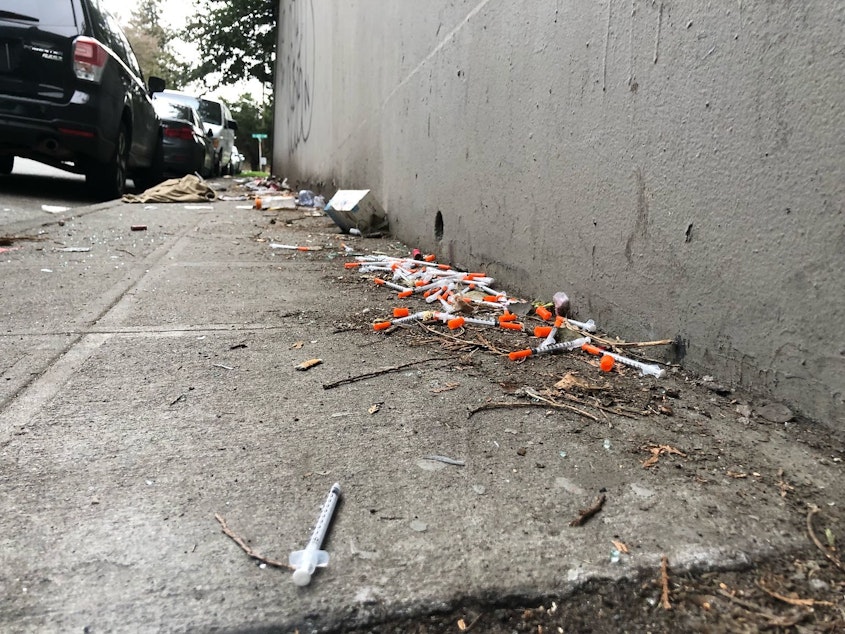Finding a fix for Washingtonians who want opioid treatment

One of the problems with combating the opioid epidemic is getting treatment to those who need it most.
A new effort is being launched around Washington state to do just that.
Caleb Banta-Green is with the University of Washington’s Alcohol and Drug Abuse Institute and is the clinical director of the new Meds-First Initiative. It will open four treatment sites, in North Seattle, Tacoma, Spokane and Walla Walla, with funding from the Paul G. Allen Family Foundation.
Banta-Green spoke to KUOW’s Angela King about the program and who it will try to help.
Caleb Banta-Green: The short answer is we're actually trying to make opiate use disorder treatment accessible to everyone right now.
Between 70 to 80 percent of people who could benefit from treatment can't access it, and they can't access it often because they're not welcome or in fact there are rules that exclude them.
I've talked with treatment programs that say, “We don't take homeless people or you take something in addition to your heroin. We're not going to take care of you.”
Sponsored
Well the problem is the majority of people who use heroin also use other drugs, so the idea with this program is we're making it available to everyone, when and where they want it.
Angela King: You're doing this through clinics where?
Banta-Green: Our launching sites are co-located with syringe exchanges. And the reason for that is that we've surveyed them in the past and we know that over three-quarters of people at syringe exchange want to stop using opioids. And the majority of them actually want the most effective treatments which are treatment medication. So why not start where the people are.
King: Why do you think such treatment is needed right now?
Sponsored
Banta-Green: Opiate disorder is disabling and chaotic to the individuals, to their families, to their social networks, to the community. It's just causing a real crisis. And then of course we have deaths — we have about two opiate-involved overdose deaths every day in Washington state.
King: Now there's been some resistance to other proposals to help people with drug addictions -- efforts like safe injection sites and needle exchanges. What would you say to people who are worried about having your program treatment site near where they live?
Banta-Green: I think the answer is pretty simple. Do you want people with opiate addiction NOT in treatment in your community or do you want them IN treatment?
Because people with opiate addiction do one thing every day: They use opiates and they use the opiates they can get the easiest. And right now it is easiest to get heroin or fentanyl way easier than getting access to treatment medications. So we're just trying to flip the script. Why don’t we make it way easier to get access to treatment medications? It's better for everybody.
King: This program is based on a pilot project in Seattle’s Belltown area. What did that study find?
Sponsored
Banta-Green: We just published research last week on a pilot project that launched in January 2017 at the Belltown public health syringe exchange clinic.
There was this same medication first model of abuse disorder treatment, and we enrolled about 150 people in the first year. The demand was incredible. People just showed up, they were really lining up a couple hours early to get treatment medications. You build it and they will come.





